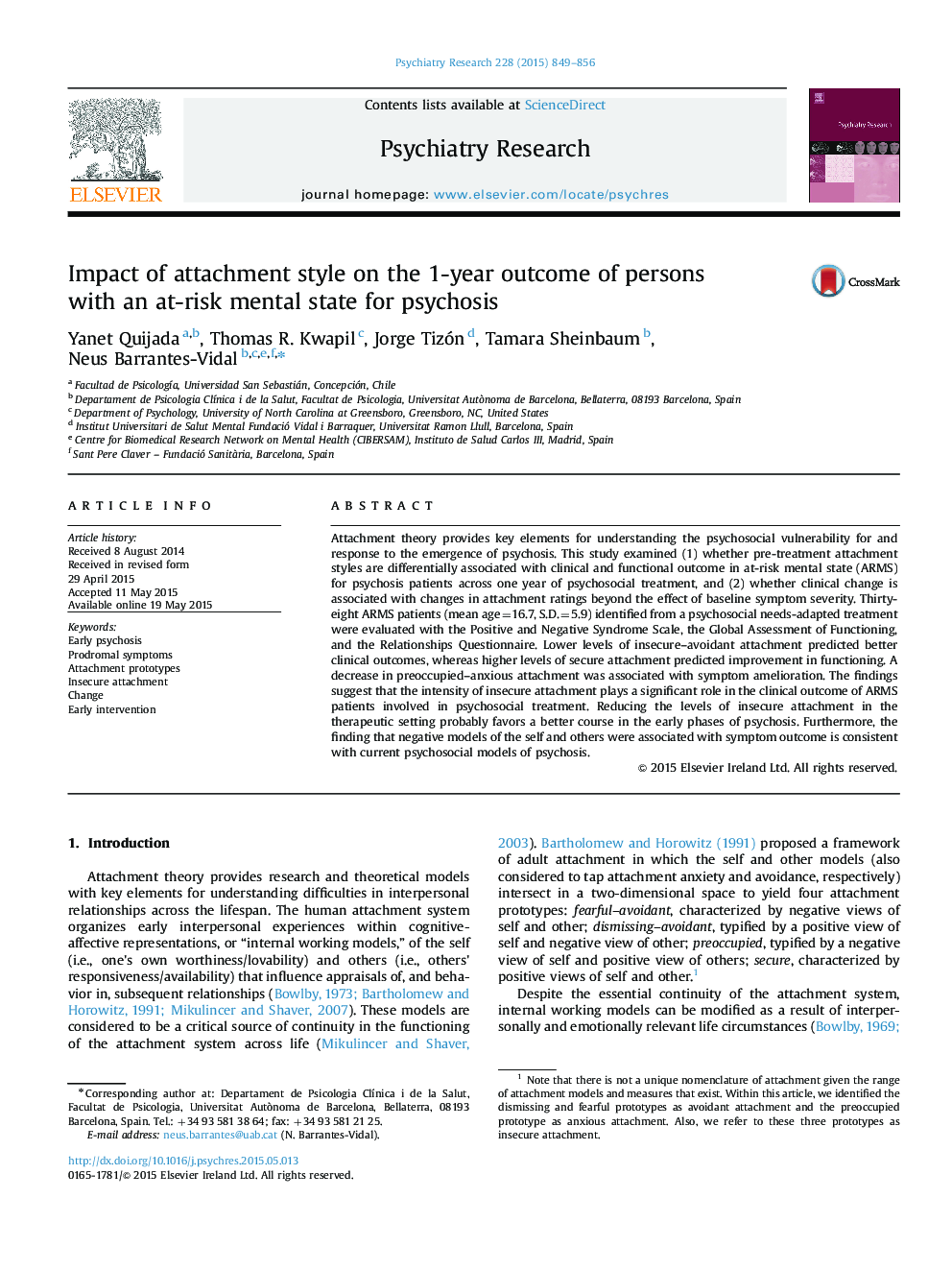| Article ID | Journal | Published Year | Pages | File Type |
|---|---|---|---|---|
| 10303751 | Psychiatry Research | 2015 | 8 Pages |
Abstract
Attachment theory provides key elements for understanding the psychosocial vulnerability for and response to the emergence of psychosis. This study examined (1) whether pre-treatment attachment styles are differentially associated with clinical and functional outcome in at-risk mental state (ARMS) for psychosis patients across one year of psychosocial treatment, and (2) whether clinical change is associated with changes in attachment ratings beyond the effect of baseline symptom severity. Thirty-eight ARMS patients (mean age=16.7, S.D.=5.9) identified from a psychosocial needs-adapted treatment were evaluated with the Positive and Negative Syndrome Scale, the Global Assessment of Functioning, and the Relationships Questionnaire. Lower levels of insecure-avoidant attachment predicted better clinical outcomes, whereas higher levels of secure attachment predicted improvement in functioning. A decrease in preoccupied-anxious attachment was associated with symptom amelioration. The findings suggest that the intensity of insecure attachment plays a significant role in the clinical outcome of ARMS patients involved in psychosocial treatment. Reducing the levels of insecure attachment in the therapeutic setting probably favors a better course in the early phases of psychosis. Furthermore, the finding that negative models of the self and others were associated with symptom outcome is consistent with current psychosocial models of psychosis.
Related Topics
Life Sciences
Neuroscience
Biological Psychiatry
Authors
Yanet Quijada, Thomas R. Kwapil, Jorge Tizón, Tamara Sheinbaum, Neus Barrantes-Vidal,
